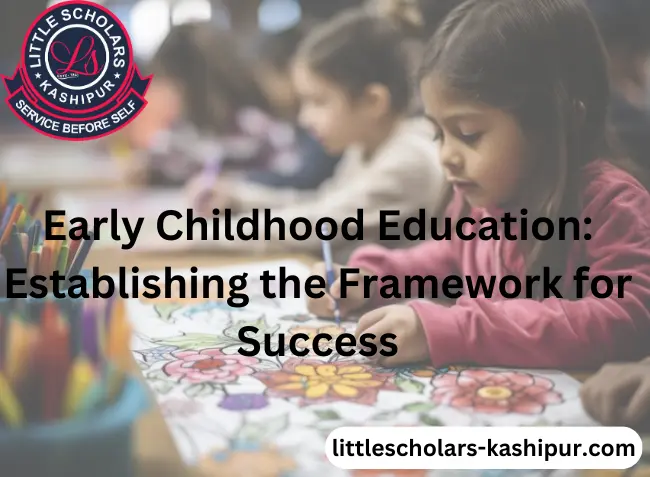Early childhood education lays the groundwork for a child's future success by nurturing their cognitive, social, and emotional development during their formative years. This crucial period, from birth to around age eight, sets the stage for a lifetime of learning and achievement. In this article, we'll explore the significance of early childhood education, the role of parents, types of programs available, key components of quality education, benefits, challenges, and strategies for improvement.
importance of Early Childhood Education
Early childhood education is not merely about babysitting; it's about providing a stimulating environment where children can explore, learn, and grow. Research consistently shows that children who participate in high-quality early education programs are more likely to succeed academically, have better social skills, and earn higher wages later in life.
The Role of Parents in Early Childhood Education
Parents play a critical role in their child's early education journey. From reading bedtime stories to engaging in educational activities at home, parents are their child's first and most influential teachers. Positive parent-child interactions foster a love for learning and create a supportive foundation for educational success.
Types of Early Childhood Education Programs
There are various types of early childhood education programs, each offering unique approaches to learning. Preschools typically focus on preparing children for kindergarten through structured play and early academics. Daycare centers provide childcare services alongside educational activities. Montessori schools emphasize independence, freedom within limits, and hands-on learning experiences.
Key Elements of a Quality Early Childhood Education Program
A quality early childhood education program encompasses several essential components. A well-designed curriculum tailored to the developmental needs of young children ensures that learning is both engaging and meaningful. Qualified teachers who understand child development and employ effective teaching strategies are instrumental in fostering a positive learning environment. Additionally, involving parents in their child's education strengthens the home-school connection and reinforces learning beyond the classroom.
The Lifelong Learning Program Ontinuous Growth:Read now
Benefits of Early Childhood Education
The benefits of early childhood education extend far beyond the early years. Children who receive a quality early education experience better academic outcomes, including higher test scores and increased graduation rates. Moreover, they develop essential social and emotional skills, such as empathy, self-regulation, and conflict resolution, which are crucial for success in school and life. Investing in early childhood education yields long-term dividends, contributing to a more skilled workforce and a brighter future for society as a whole.
Challenges in Early Childhood Education
Despite its importance, early childhood education faces several challenges. Accessibility remains a significant issue, particularly for low-income families and underserved communities. Insufficient funding often limits the availability of high-quality programs, exacerbating educational disparities. Moreover, ensuring that early childhood educators receive adequate training and support is essential for maintaining program quality and effectiveness.
Strategies to Improve Early Childhood Education
Addressing the challenges in early childhood education requires a multifaceted approach. Government initiatives, such as universal pre-kindergarten programs and increased funding for early education, can expand access to high-quality programs. Community involvement, including partnerships between schools, families, and local organizations, can create a supportive network that promotes children's holistic development. Additionally, investing in professional development opportunities for early childhood educators enhances their skills and ensures that they can effectively meet the diverse needs of young learners.
Building a Sustainable Future: Environmental Sustainability and Stewardship in Action: Read now
Conclusion
Early childhood education is a fundamental building block for lifelong learning and success. By providing children with a solid foundation during their formative years, we can empower them to reach their full potential and become active, engaged members of society. By recognizing the importance of early education, supporting parents, investing in quality programs, and addressing challenges through collaborative efforts, we can create a brighter future for generations to come.




